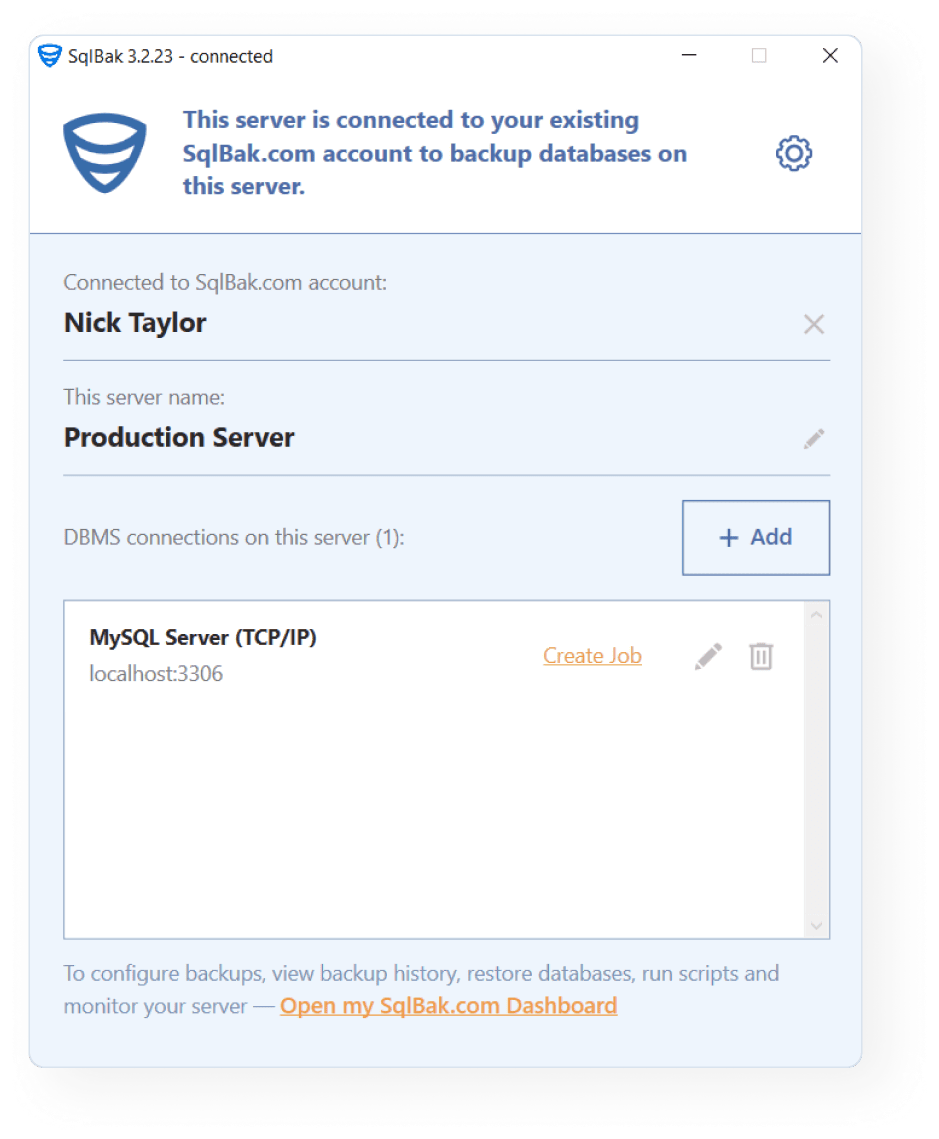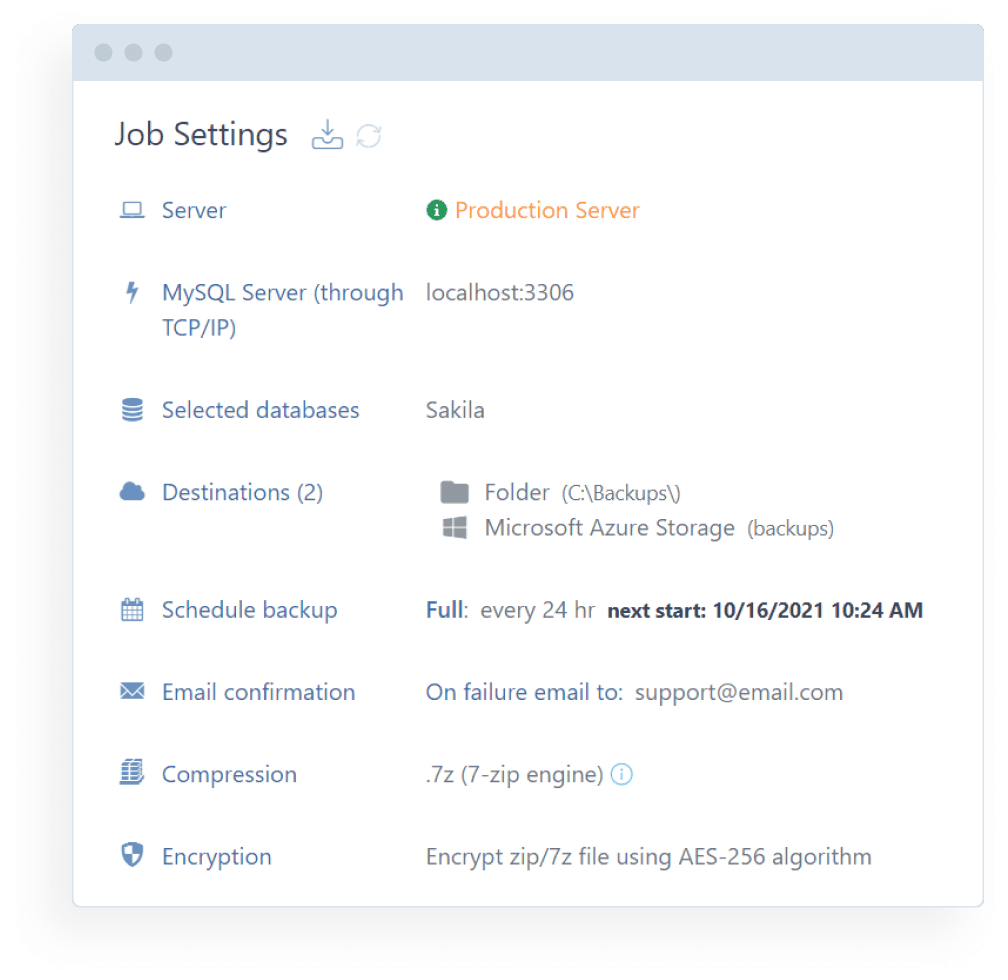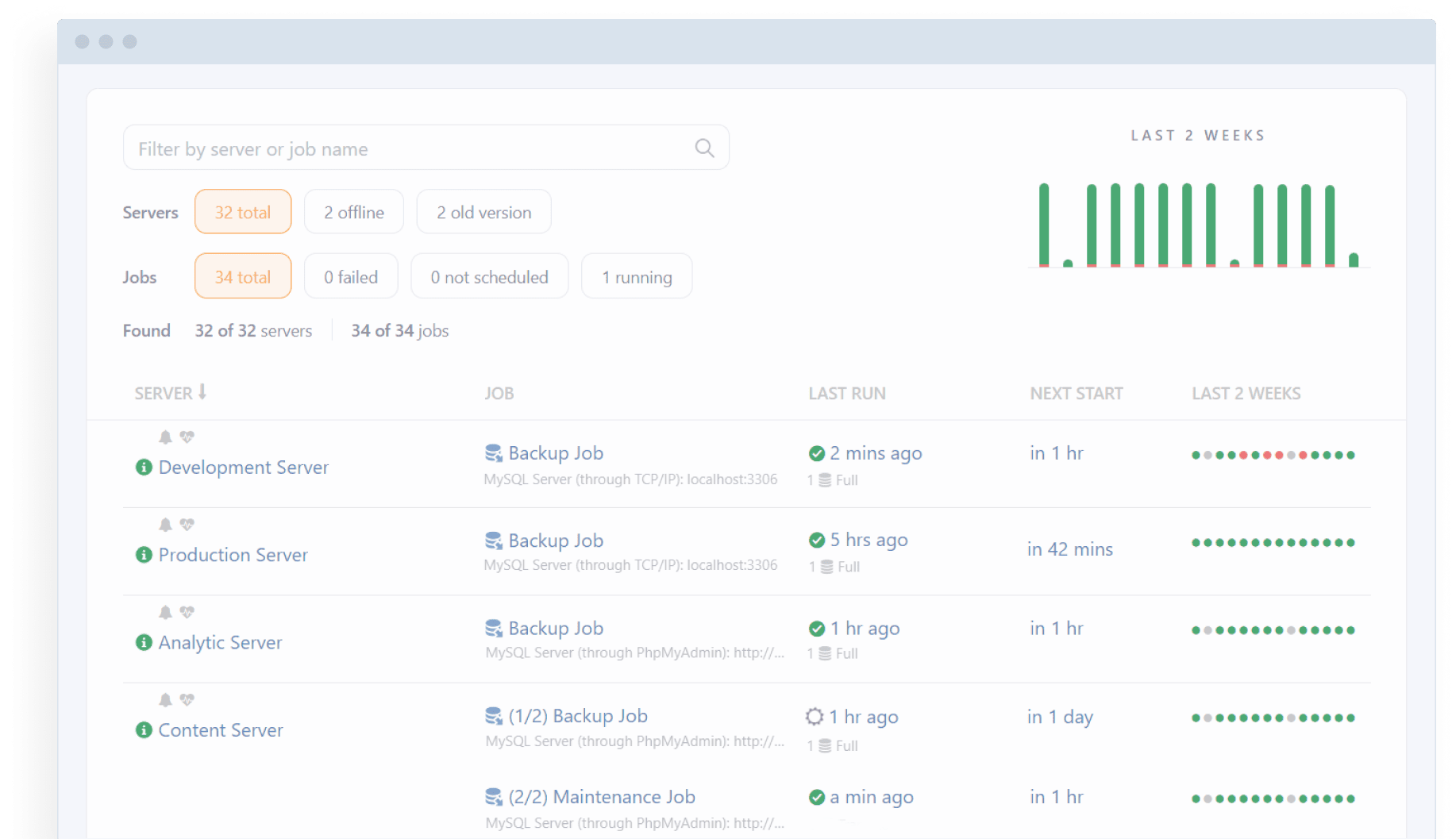Automate MySQL backups from a single place on the web
Start nowscroll down
Connect to your MySQL databases
and send backups to
Any MySQL and MariaDB
Supports MySQL Version: 5.6, 5.7, 8.0 and all MariaDB versions starting from 10.2
On Any Linux
Supports all popular Linux distributions (Ubuntu, CentOS, Debian, etc.), Docker and Raspberry Pi
On Any Windows
Compatible with any version of Windows and any Windows Server
Features
Hot backups
There is no need to stop MySQL Server to create a backup.
Be notified
We will send you an email if there is a problem with the backup or the performance of your database server.
One-click restore
If a failure occurs, the data can be restored with the click of a button.
- Zip and 7Zip compression
- Rest API
- Connection and configuration of new backup jobs via CLI
- Automatic restore to another MySQL Server
- Command-line interface to run the backups through a batch file
- Maintenance jobs
- Email notifications
- Local folders backup
Point in time recovery
SqlBak can perform incremental binlog backups.
Incremental backups contain the changes made since the last backup only. They are fast, don't use database resources, and take up little space.
How it works

Install an app
Install a lightweight app on your Windows or Linux server and connect to your database and SqlBak account. Then forget about it – it will run as a background service.

Schedule a backup job online
Create a new backup job on SqlBak.com. Set encryption, compression and notifications. Select any of your cloud storages to send your backups there. Schedule it.
Manage backups on multiple servers
Connect to any number of servers and see all your backups on a single page.

Your backups are secure
The backups are protected
Your backups are encrypted and uploaded to your storage directly from your server, bypassing SqlBak.com
The credentials are safe
Your database connection credentials are encrypted and stored on your server, not on SqlBak.com
Trusted company
We are the creators of SQLBackupAndFTP - the original SQL Server backup utility with over a million installations since 2008
Frequently Asked Questions
How does SqlBak make full backups?
SqlBak uses the standard mysqldump utility that is installed along with MySQL Server. This utility creates a SQL script with commands to create tables and populate them with data. Functions, views and triggers are also dumped.
How does SqlBak make incremental backups?
SqlBak creates incremental backups based on MySQL Server binlogs. All transactions that change data are recorded in the MySQL Server binlog. SqlBak keeps track of binlog files and copies into a backup file all that is needed for a restore. You can find more details about how to backup binlogs in this article.
How can the backups that were created via SqlBak be restored?
It is very easy to do. All you need is to select a backup that should be restored from a list and press one button. SqlBak downloads all the needed backups and restores them. Here's a simple guide on how to restore a database.
Why should I backup MySQL databases if my hosting already does it?
There are several reasons:
- Hosting backs up the entire system. If only one database will be corrupted, then in order to restore it you will have to roll back the entire system.
- As a rule, hosting creates a backup once a day. In SqlBak, you can make backups more often, via your own schedule.
- Hosting stores your backups for a limited amount of time. In SqlBak, you decide where to store backups and when to delete them.
Can the backups be sent to different destinations?
Yes, this is the correct way to store the backups. Don't put all your eggs in one basket. SqlBak makes it very easy to set up. See How to backup SQL Server databases to multiple destinations. In addition, you can mark a destination as an emergency one in SqlBak. In this case, the backups will be uploaded to it only if the backups could not be transferred to the main destination.
Is it possible to backup local folders along with databases?
Yes, while setting up a backup job, you can select any number of local folders for which the backups will be performed along with the databases.
Can the databases be automatically restored to another server?
Sure, it can be achieved by configuring the "Restore tasks" in your backup job. After the restore, you can run a SQL script in the restored database, for example, to delete confidential data. That option is very useful for setting up a test server.
You can even backup a database on Windows and restore it on Linux (or vice versa). The article How to Copy Databases from Windows to Linux describes the process.
You can even backup a database on Windows and restore it on Linux (or vice versa). The article How to Copy Databases from Windows to Linux describes the process.
